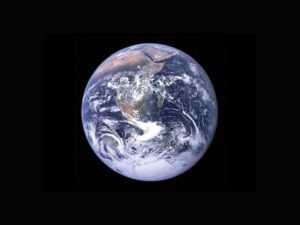Taxing social bads rather than social goods can change everything
Earning income is good for you as it gives you money in your pocket, it’s good for society (because the job or work you do must be of social value), and it’s good for the economy, as that money in your pocket can be spent on goods and services. But before you earn a salary, the government takes a large wedge of it in income tax. Income tax punishes a social good. Meanwhile, the impacts of fossil fuels (for example), which release greenhouse gas emissions that cause the climate crisis, go unpunished.
To make matters worse, governments subsidise the fossil fuel industry (a staggering $5.9 trillion in 2020) partly through the taxes collected from your income. So, not only do we tax a social good, we then use the proceeds to support an industry that is destroying the climate.
The current state of affairs makes no sense, but income tax goes unquestioned because it works just fine for the wealthy, who manipulate the rules of the game to make sure they pay less tax. For decades, the social benefits of trickle-down economics have been lionised by right-wing governments. The idea is that taxing the rich less is good for society because they then invest in businesses and the economy, which helps stimulate economic growth.
The benefits of more economic growth trickle through society, helping to increase incomes as it does. The reality is that trickle-down economics has the exact opposite effect. Funnily enough, if you tax the rich less, they get richer. It’s no coincidence that since this argument was made (in the early 1980s), inequality has increased in Europe and the US.
That the tax burden revolves around income is also great for the fossil fuel industry and many others with destructive environmental impacts. They like it just how it is, with taxes being used to support them in keeping prices low.
Tax havens exacerbate inequalities further by allowing corporations and the elite to syphon money into hidden accounts so that they pay no tax at all. The Pandora papers were the biggest ever leak exposing the financial secrets of the rich and famous. From politicians to royal families to celebrities, the richest take advantage of this secret financial underworld to hoard money offshore to avoid paying taxes.
A recent IMF report on the financial consequences of tax havens estimates up to $36 trillion is held offshore by individuals. That’s 7% of all human wealth. Tax losses from global individual income are estimated at around $200 billion a year. Corporations are also in on the act. American Fortune 500 companies held an estimated $2.6 trillion offshore in 2017. Collectively, tax havens cost governments between $500 billion and $600 billion a year in lost corporate tax revenue.
That colossal sum which gathers dust in secretive accounts could finance education programmes, social welfare, health care, or the countless other ways governments support a functioning society and help distribute wealth to those who need it most.
What’s clear is that the current tax system is flawed on a number of levels, radical reform of the tax system could trigger profound changes.
Let’s imagine we stopped taxing income for low and medium earners. Instead, we embedded the environmental impacts of products and services as a tax within prices. Let’s call it a ‘pollution’ tax. The amount of tax paid to purchase or product or service correlates to its environmental impacts. The greater the impact, the higher percentage of tax paid, the lower the impact the lower the tax paid.
This type of tax system would punish people for purchasing products with high impacts. Some people will be willing to pay a premium for products with higher prices; eating meat is a prime example. But, it will create a disincentive for people to buy products and services with high environmental impacts, which is precisely what’s needed to reduce pressure on the environment.
It would also encourage a profound shift in the energy used to run society. Rather than subsidies for fossil fuels creating artificially low prices, embedding environmental impacts within prices would reveal their true cost to society and the environment. Doing so would disincentive the use of fossil fuels as they will become so expensive. As prices for certain products would increase, it would provide a necessity and motivation to think of alternatives so that the cost of energy inputs decreases.
This type of tax system would reward what we want more off —for example, encouraging a move towards renewable energy and a circular economy while punishing what we want less off.
A problem with shifting the tax burden in such a way is that the lower and middle incomes (who comprise a far higher proportion of the population) would make disproportionate contributions.
To combat this and help reduce inequality, high earners would continue paying income taxes on earnings over a certain threshold. On top of this, high-end products could have an added premium. Both measures would increase the burden of the wealthiest while helping to reduce levels of inequality.
One of the central arguments for why economic growth is so important is that it leads to a rising tide that raises all boats. Essentially as the economy gets bigger, people’s incomes tend to rise. With higher incomes, people can maximise their utility, which (so it is argued) will lead to increased wellbeing and happiness.
The problem with the continuation of this goal is that the West is already overconsuming as it is; even higher incomes will allow more people to consume more stuff, which will make us even less sustainable. When looking at the bigger picture, higher incomes are creating all sorts of adverse environmental impacts. Shifting the tax burden would help reveal how unsustainable a consumer-centric lifestyle is.
This would make it easier to encourage people to consume less in the developed world, freeing resources and energy to allow developing countries to consume more.
Desperate times call for innovative ideas. Changing the tax system would be deeply unpopular for the wealthy and industries like fossil fuels, and that’s precisely why it could work. But so long as a rich elite controls the rules of the game, the tax burden will be lumped on those who earn the least; meanwhile, we’ll continue hurtling toward social collapse.



